Our History
Our Philosophy
With a specialized staff operating for years in the field, QVision offers:
• experience, gained over 25 years in the field
• reliability, ensuring maximum availability and maximum personal commitment at all stages of cooperation, from the initial feasibility study, to the realization of the product, its installation, training to the personnel working on the machines, the after-sale and the possible update of the product over the years, also according to the changing needs of the customer.
• attention to the specific needs of the customer, in the belief of the fundamental importance of a personal direct relationship, intended to transform the simple supplier-customer duality in a constructive and proactive cooperation, aimed at achieving a common goal.
• willingness to growth and innovation in the search for ever higher quality standards, putting in first place the study and the development of increasingly advanced projects, using the most modern technologies in the field of acquisition and image processing.
Applications
The main field of activity of the company is the design and production of artificial vision systems for quality control in the packaging industry, mainly for the food and beverage sector. Basic products are the systems dedicated to the control of closures (plastic and aluminum) and the systems for the inspection of vials / bottles / preforms. These systems, through the use of digital cameras and image processing systems, allow the automatic quality control at the end of the production line, with the ejection of defective parts, on the basis of the control tolerances set by the line supervisor / operator.
Among the special applications, we mention the IR scanner, device for infrared reflectography tool, a diagnostic technique that finds application in the field of Cultural Heritage
Why
The ever-increasing need to guarantee product quality, the desire to optimize production by reducing the number of defects and the need to contain costs, push companies to face a new way of thinking: today a reliable and accurate quality control of each piece is required.
The traditional sampling control cannot guarantee the required quality, while the use of increasingly automated, flexible and fast production techniques make the manual control not applicable, as it cannot ensure the necessary repeatability and, besides, it is prohibitive for the high labor cost.
In this context, digital image processing systems are perfectly integrated, since they allow to automate quality control in an objective and repeatable way. Correctness of the assemblies, analysis of shapes and color, measurements, are some examples of the inspections that can be carried out in a few fractions of a second, in a precise and repeatable way.
Vision systems are now used in the most diverse production sectors.
